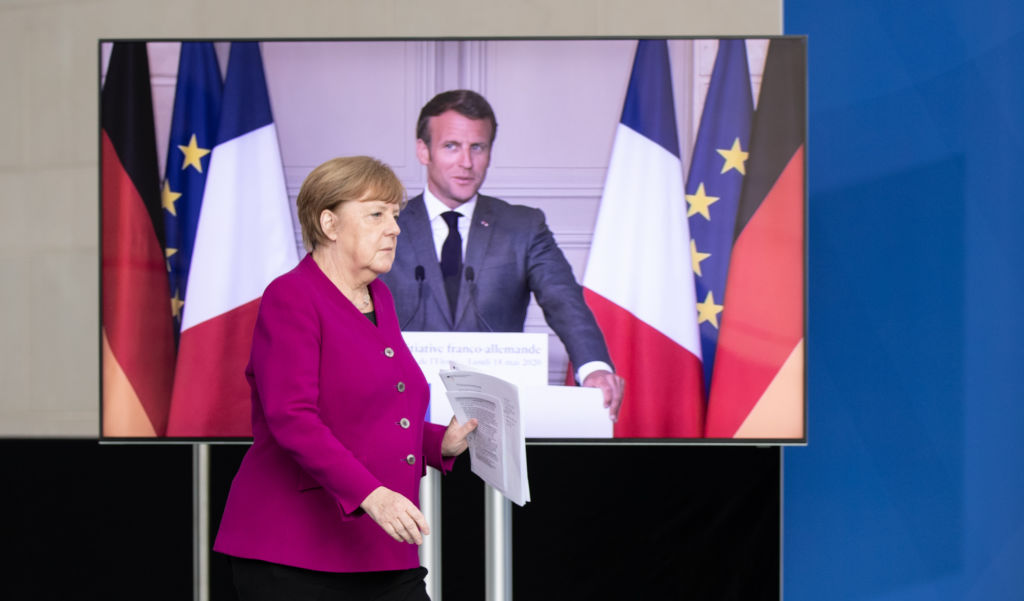It is finally here. Die-hard European Union federalists have plotted for it for years. Economists and thinks tanks have argued for it. The Greeks and Italians have pleaded for it. And French presidents have made no end of grand speeches, full of references to solidarity and common visions, proposing it. The Germans have finally relented and agreed, at least in part, to share debt within the EU and the euro-zone, and bail-out the weaker members of the club.
France’s president Macron and Germany’s chancellor Merkel last night agreed a 500 billion euro (£450bn) plan that will re-distribute fund from the stronger members to the weaker. There is a problem however. It will make a British exit without a deal a lot more likely. And the terms of the deal are so punishingly unfair, it will drive an irreparable wedge between the euro and non-euro countries.
The Merkel-Macron plan is certainly a big step forward. The EU will borrow 500bn euros, taken onto its own books, and give the money to states where it most needed. Crucially that money will be dished out as grants rather than loans. In effect, the EU will finally have a Treasury that can borrow money and re-distribute it around the bloc. Saxony will be paying for Sicily, and the Ile-de France for Lombardy, in much the same way that London helps pay for Sunderland and Wrexham. The EU will have taken a big step towards being a single nation, and the euro to being a proper currency.
Of course, it remains to be seen whether it can actually be agreed. The Austrians have already signalled their opposition, and the Dutch will probably join them. It will take an almighty fight to turn the fund into a reality. Even so, if the Germans are on board, that is a significant moment.
There is a catch, however, and a serious one. The money will be borrowed, based on income from the EU’s future budgets, but it will in effect be guaranteed by the member states, based on the EU’s ‘capital key’. The UK’s share is therefore 13 per cent of the total, or 65bn euros (£58bn). If the bail-out is pushed through before the end of the year, the UK may well be saddled with a share of the debt. If we extend the transition period we certainly will be. Will the EU try and stall the talks to make sure that happens? Almost certainly. It would be crazy not to.
In effect, that must surely finally rule out any transition and make an agreed exit deal impossible. For Britain, a trade deal with the EU is simply not worth an extra 65 billion euros in debt. We should simply refuse. In fact, the rescue plan is completely unfair on all the EU countries outside the euro-zone. The only reason Italy and Spain need the bail-out is because they can’t print their own currency, in the same way Britain, Switzerland or Japan can.
So why should they pay for it? Poland for example has been lightly hit by the virus (it has 20,000 infections, and fewer than 1,000 deaths) and can print its own money. It doesn’t really have a significant problem. But it will still be expected to pay in five per cent (or 25bn euros (£22bn)) to bail-out of far richer Italy (Polish GDP per capital is $15,000 (£12,000) compared with $34,000 (£27,000) for Italy). Overall, a third of the ‘guarantees’ will come from non-euro countries.
The federalists may be close to winning their common EU Treasury. But the plan is so badly designed, it will force the UK into leaving without a deal. And sooner or later the countries outside the euro will notice they are paying for someone else’s problems – and may think about leaving as well.






Comments